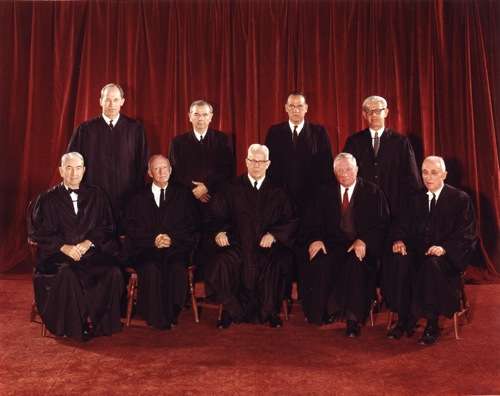The Volokh Conspiracy
Mostly law professors | Sometimes contrarian | Often libertarian | Always independent
Today in Supreme Court History: March 13, 1963
3/13/1963: Ernesto Miranda is arrested.

Editor's Note: We invite comments and request that they be civil and on-topic. We do not moderate or assume any responsibility for comments, which are owned by the readers who post them. Comments do not represent the views of Reason.com or Reason Foundation. We reserve the right to delete any comment for any reason at any time. Comments may only be edited within 5 minutes of posting. Report abuses.
Please to post comments


I like to remind people that Ernesto Miranda was convicted *without* the confession at the second trial.
Why?
Of what relevance is this?
Yeah. He got a fair trial. Which is entirely proper.
The lawyer dumbass cannot understand, this useless prcedure made no difference to anyone, not even its beneficiary.
"Lawyer dumbass" is the gender neutral way to call a lawyer.
It makes a ton of difference. Probably tens of thousands of criminal suspects have been able to avoid incriminating themselves in police interrogations. It has even spread to other countries.
Just because Miranda got retried and convicted doesn't mean it made no difference. The state had to prove its case rather than relying on his interrogation.
If it made a difference in the US, it was to set off an explosion in crime and in lawyer employment.
1. Miranda reaffirmed what had been the common law rule for at least a century, at least in Britain.
See the Dickens novel “Our Mutual Friend” (1865):
“It’s my duty to inform you that whatever you say, will be used against you.”
"I don't think it will."
"But I tell you it will!"
(The Inspector to John Rokesmith, Book the Fourth, Chapter 12.)
2. Warren, who wrote the opinion in Miranda, had been a prosecutor. So had Black and Douglas, who joined in. As prosecutors they had seen how defendants can get railroaded into prison, and possibly had used some of those tricks themselves.